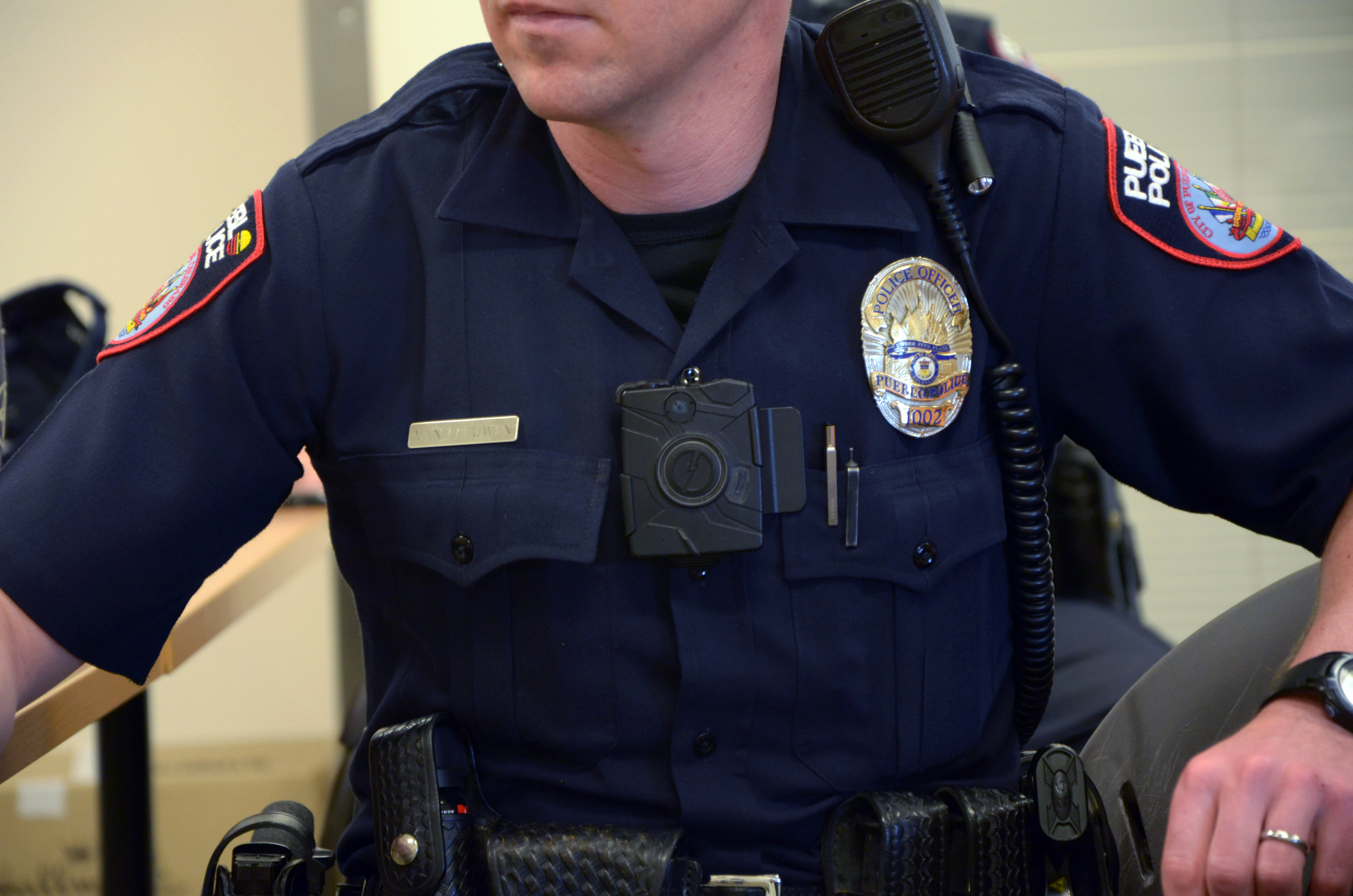
Over the past few months, CPR News has delved into questions about police body cameras. These new tech tools are being adopted by a growing number of law enforcement agencies in Colorado and the rest of the country amid rising concern about violent encounters between officers and civilians on the street.
- Background Basics On Colorado's Body Cameras
- How The Technology Helps Civil Rights Cases
- Video Can Catch Abuse Or Clear Officers' Names
- Pueblo Body Cameras Are An Extra Set Of Eyes
Here's some of our key takeaways as we wrap up our current coverage. We'll be using what we've learned to help shape future stories.
Where The Body Cameras Are In Colorado
A January 2015 survey found that 28 percent of law enforcement agencies are already using body cameras, according to the Colorado Peace Officers and Standards and Training. At this point though, almost twice as many departments are still considering whether or not they want to use body cameras.
Many other jurisdictions have tested body cameras, or are in the process of purchasing them.
Michael Brown's Shooting In Ferguson Changed Officers' Minds
Phoenix Assistant Chief Michael Kurtenbach told Colorado Matters that before the shooting in Ferguson, Mo., there was pervasive fear among the line-level officers that body cameras would be used against them.
"The reality is that if you're looking for a policy violation, just as if you're looking for a traffic violation, you can find it," he said. "What we saw happen with Ferguson, however, was an understanding that if officers are doing their jobs correctly, there's tremendous value in having that contact captured with video technology."
It's Not Just Well-Off Cities That Buy Body Cameras

Leaders in cash-strapped Pueblo bought cameras at a cost of more than $400,000 over five years, despite not having funds to paint some of Pueblo's cop cars.
"Budget is an issue in the city of Pueblo. But the importance of having video saves in the long run, just in complaints and lawsuits," said Sgt. Eric Gonzales, a Pueblo Police Department spokesman.
Complaints against the Pueblo police went down 17 percent in the first six months officers used body cameras, the department says.
Someday, Body Cameras Might Have Facial Recognition Too
Two years ago, the Colorado Information Sharing Consortium tested facial recognition technology and found it wasn't reliable enough to be useful to police, according to Executive Director David Shipley.
But if the technology was highly reliable, Shipley said, police investigators would be eager to use it -- including the possibility of it with body cameras.
"All of our members would love to have this technology," Shipley said. "We would love to be able to identify that crook, that person who is about to harm somebody else and stop them before they do because of some past crime and we're able to identify them.








